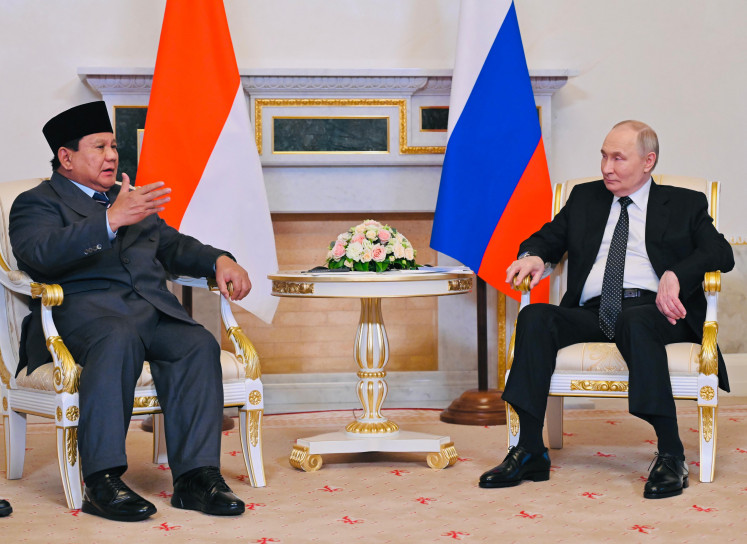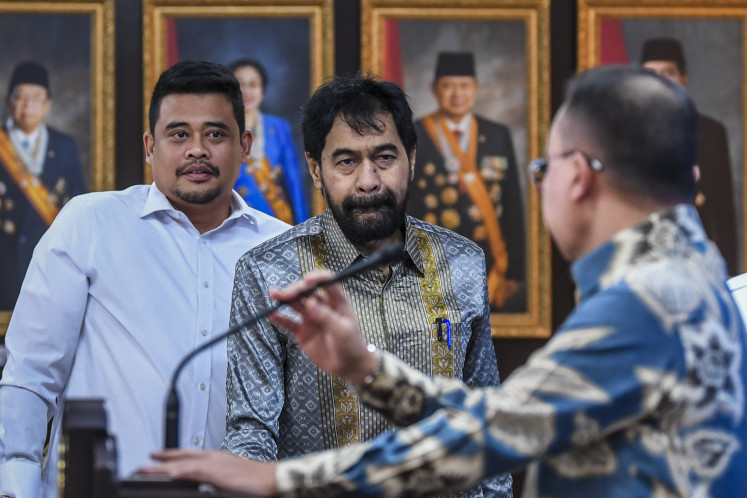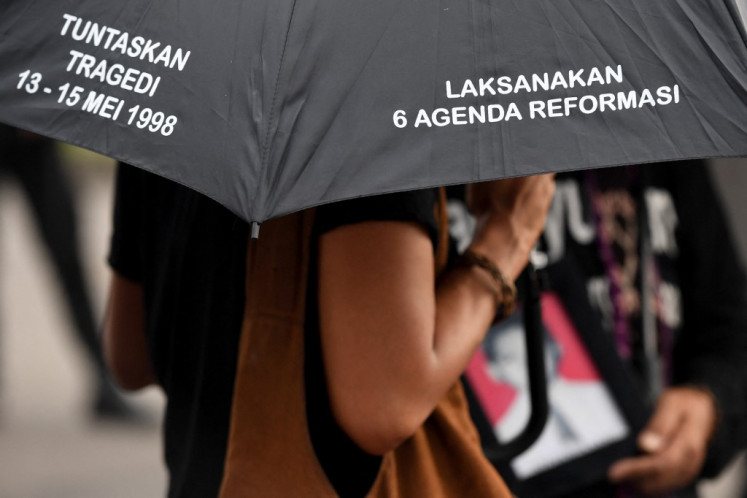Popular Reads
Top Results
Can't find what you're looking for?
View all search resultsPopular Reads
Top Results
Can't find what you're looking for?
View all search resultsRI, China agree to renew currency swap arrangement
Bank Indonesia (BI) will renew a bilateral currency swap arrangement (BCSA) with the Peopleâs Bank of China (PBoC) in an effort to strengthen Indonesiaâs line of defense
Change text size
Gift Premium Articles
to Anyone

B
ank Indonesia (BI) will renew a bilateral currency swap arrangement (BCSA) with the People's Bank of China (PBoC) in an effort to strengthen Indonesia's line of defense.
Initial agreement on the renewal of the BCSA was reached during a meeting of Indonesian and Chinese government officials on the sidelines of the G20 Summit that took place on Sunday in Antalya, Turkey.
BI deputy governor Perry Warjiyo said the volume of funds under the renewed arrangement would increase to 130 billion yuan, about US$20 billion, from the previous 100 billion yuan, about US$15 billion.
'This is part of our coordination with the government to strengthen our external line of defense. In the future, we expect our financial system to be more resilient against external shocks, especially in anticipating the impact of the upcoming FFR [US Federal Funds Rate] increase,' he said at a press conference on Tuesday.
Perry said that BI and the PBoC had yet to determine the duration of the renewed arrangement, adding that BI would still hold talks with its counterpart before signing the deal.
The current BCSA was renewed for the second time in 2013 after it was established in 2009. Back in 2013, the arrangement was renewed for a period of three years, and no change occurred in the amount of the funds.
BI claims that the BCSA funds will ensure supply of rupiah and yuan for businesspeople in respective countries, without requiring them to change their money into US dollars first. For Indonesia, such a facility can help reduce dependence on the use of the US dollar and take some pressure off the rupiah.
Finance Minister Bambang Brodjonegoro, who attended the summit, acknowledged that the additional $5 billion under the renewed BCSA could be used for liquidity support.
The support is especially important at this time to back up falling foreign exchange (FX) reserves. The reserves have been depleting as a result of slow exports and BI's intervention in the FX market to stabilize the rupiah.
The rupiah was especially volatile in the third quarter of this year, triggered by capital outflows in anticipation of a higher interest rate in the US and as a result of yuan devaluation.
Data from BI show that the reserves stood at $100.7 billion in October, falling from this year's peak of $115.5 billion in February and from $112 billion in October last year. Indonesia also has a $22.76 billion bilateral swap arrangement with Japan.
If necessary, the country can access additional funding through the Chiang Mai Initiative Multilateralization scheme ' involving ASEAN members, China, Japan and South Korea ' and through the World Bank's deferred drawdown option.
Meanwhile, Bambang added that the Chinese government had also expressed its commitment during the meeting in Turkey to increase investment in Indonesia.
'The President [Joko Widodo] conveyed to President Xi Jinping that it should invest more in infrastructure and manufacturing in Indonesia. The Chinese president immediately responded, saying that it would increase investment, especially in manufacturing,' he said in a teleconference.








